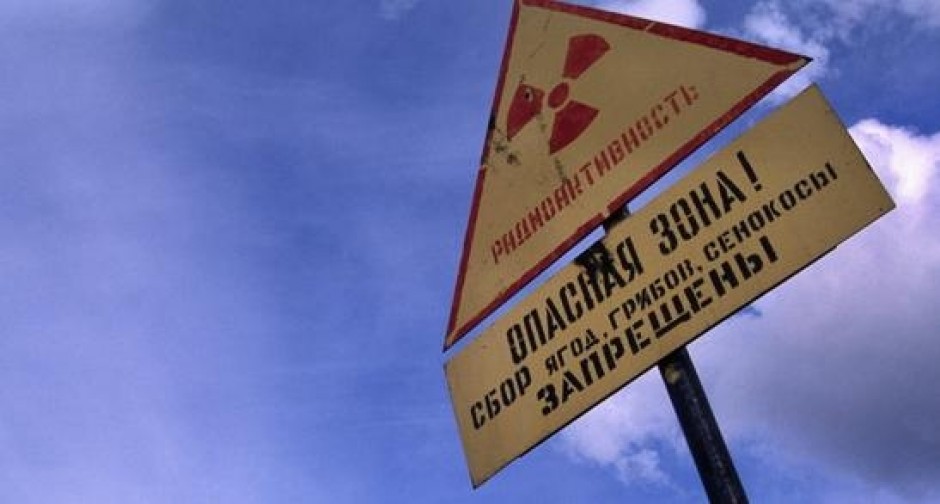
Arctic Frontiers: Disinformation, Security and the Northern Sea Route
Bellona held a seminar on countering Russian disinformation in the Arctic at the Arctic Frontiers international conference in Norway
News

Publish date: June 29, 2020
News
Russia over the weekend denied that its nuclear power plants were the source of a minor radiation spike detected by Scandinavian regulators – a report that touched off a flurry of speculation in local and European media about its possible origins.
Last week, industry watchdogs in Finland and Sweden reported increased levels of ruthenium 103, cesium 134 and cesium 137 during the month of June, numerous news outlets, including the Associated Press, reported. Individually, Norway recorded levels of iodine 131.
The countries did not accuse Russia directly, but the Netherlands’ National Institute for Public Health and the Environment (or RIVM in Dutch) said Friday that an analysis of the data suggested the “radiation was coming from the direction of western Russia” and that the pattern “may indicate damage to a fuel element in a nuclear power plant.”
RIVM added that “a specific source location cannot be identified due to the limited number of measurements.” In a later statement on Sunday, the RIVM stressed that it had not specifically identified Russia as the country of origin for the apparent leak, The Moscow Times reported.
The agency, as quoted by the paper, said that its initial statement, which was issued in Dutch, may have been “mistranslated.”
“The claim RIVM makes is that the radionuclides traveled from the direction of western Russia to Scandinavia, but that no specific country of origin can be pointed out at this moment,” the RIVM was quoted as saying on Sunday.
All of the agencies that detected the radiation uptick stressed that it was not dangerous to the environmental or to human health.
A spokesperson for Rosenergoatom, the utility branch of the Russian state nuclear corporation Rosatom, denied that there had been any radiation leaks in Western Russia. The unnamed spokesman told the official Tass newswire that the two nuclear plants in the area – the Leningrad, near St Petersburg and the Kola near Murmansk – are “working in normal regime.”
“There have been no complaints about the equipment’s work,” the representative said. “Radiation levels at both NPPs and surrounding areas remained unchanged in June.”
Like their Dutch counterpart, Swedish, Finnish and Norwegian radiation authorities said they were unable to pinpoint the origin of the leak. The International Atomic Energy Agency told Business Insider that it is aware of the reports, and has contacted Russia for clarification.
Andrei Zolotkov, who heads Bellona’s Murmansk office, said the isotopes detected by Scandinavian authorities are not naturally occurring, and must have arisen from some man-made nuclear installation. He ruled out that the apparent leak could have come from a nuclear-powered ship, many of which operate in Northwest Russia. A small leak at sea level, he said, would be unlikely to penetrate the upper atmosphere.
But he said nuclear power plants, with their tall cooling towers, could deliver measurable radiation to Scandinavian and Europeans sensors. He noted, however, that not only Russian plants should be considered. Finland operates four commercial nuclear stations and Sweden operates seven.
Still, Russia has a fraught history when it comes to being open about possible radiation leaks. In 2017, Moscow denied causing a cloud of radiation detected over much of Europe. Two years later, however, international researchers determined that the leak, which surpassed the magnitude of the Three Mile Island accident, had likely originated at the Mayak Production Association, Russia’s biggest nuclear fuel reprocessing site. In 2019, Russia was accused of covering up another radiation incident near Severodvinsk in the Arctic, which it later admitted was a botched test of a nuclear propulsion source.
Most famously, Moscow covered up the calamitous explosion at the Chernobyl nuclear power plant in 1986. The Kremlin’s relationship to that disaster is still uneasy. After the popular HBO miniseries recounting the event aired last summer, Russian state television vowed a retelling of its own, which would cast the disaster as the work of CIA plotters.
Bellona’s Zolotkov stressed that the radiation concentrations measured by European agencies are very small and don’t lend themselves to unequivocal conclusions.
Russia operates 36 commercial nuclear reactors at 11 nuclear power plants.

Bellona held a seminar on countering Russian disinformation in the Arctic at the Arctic Frontiers international conference in Norway

Our December Nuclear Digest, reported by Bellona’s Environmental Transparency Center, is out now. Here’s a quick taste of three nuclear issues arisin...

Bellona has launched the Oslofjord Kelp Park, a pilot kelp cultivation facility outside Slemmestad, about 30 kilometers southwest of Oslo, aimed at r...

Our November Nuclear Digest by Bellona’s Environmental Transparency Center is out now. Here’s a quick taste of just three nuclear issues arising in U...